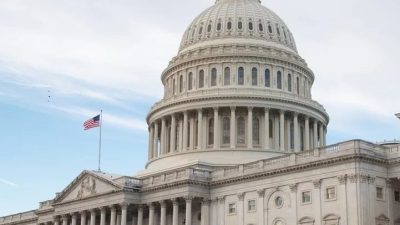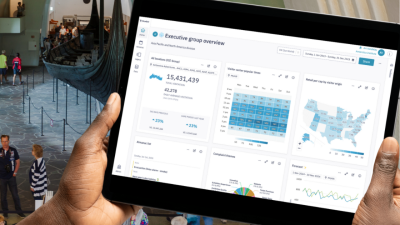In this blog post, AAM Director of Government Relations and Advocacy Gail Ravnitzky Silberglied explores why advocacy—like voting, jury service, and paying taxes—is a civic duty that furthers our nation’s democracy and prepares us and our leaders for the future. Gail joined AAM in 2008 and is the author of Speak Up For Museums, published by The AAM Press and available through AAM’s bookstore.
Civic Duty is defined as “the responsibility of a citizen” and recently I fulfilled one of our nation’s great civic responsibilities: serving on a jury. It was my first time serving, and while it took me away from work and family responsibilities, I really didn’t mind. It was actually interesting, both the subject matter and the process (so different from Law & Order!). But more importantly, I knew I was performing an important civic duty.
For me, awareness of civic duty started very early. My very first memory is from age three when I went to vote with my mom (I remember that my older brothers had to wait outside because they were for the other guy!). And while I don’t enjoy every single civic duty (paying taxes comes to mind) I know that these civic duties are the foundation of our nation’s democracy.
Museums work every day to educate and inspire the public. We help people to learn and be inspired, to stretch their imaginations, and to interpret information in new ways. This is the heart of a museum’s public service mission. Why then don’t museums step out, front and center, when opportunities arise to educate their elected officials? Perhaps we need to reframe advocacy as a fundamental civic responsibility.
Here’s some civic-minded (and future-minded) food for thought:
- Our nation’s founders included advocacy in the Bill of Rights (“the right of the people…to petition the Government for a redress of grievances.”) And isn’t there plenty to be aggrieved about?
- Elected officials actually appreciate hearing directly from constituents—it helps them build stronger ties to their community and understand the future needs of their community. (I worked for several members of Congress so I know this from experience.)
- If you are not making your case, your viewpoint will often get overlooked when it does (or doesn’t) come up in future policy debates or budget battles.
If I haven’t convinced you yet, ask yourself the following questions:
- How much buy-in do you have from the community about the future of your museum? Are your community “success stories” helping to make the case for your museum? Are your volunteers and members aware of advocacy opportunities in support of museums? You have powerful, inspiring stories about your work in the community, something elected officials need to know about in order to shape—and invest in—the future of their community.
- Do your elected officials know how your museum educates and inspires their constituents, how your museum spurs local economic activity and creates jobs, or how your museum partners with local schools to educate future generations? Even if they love museums, your community leaders may not realize how many school children or seniors or veterans you serve. And if you are securing the future for others, in other ways, for example by hosting food banks or blood banks, let them know this, too.
- Do civic leaders know your museum’s future plans? Consider planting a seed about future exhibits, needed repairs, desired expansions, or special events or milestones. Elected officials can often help to publicize or otherwise support these endeavors.
Advocacy sure sounds like a civic duty to me. And it’s never too late to get started. AAM makes it easy to advocate for museums. For starters:
- Visit the AAM Advocacy website to find information and inspiration, including how to get involved with advocacy at all levels, what’s at stake, who represents you, and why it all matters.
- Sign up to receive AAM’s Advocacy Alerts.
And (most important):
Skip over related stories to continue reading articleJoin your colleagues in D.C. for Museums Advocacy Day, Feb. 27–28, 2012, or send a board member. Museums Advocacy Day is your chance to join with advocates and colleagues from around the country and Speak Up for Museums! We provide training and support—you do your civic duty to tell legislators about the good work museums do. And it’s way more fun than jury duty.
This year, for the first time, the Museums Advocacy Day agenda includes a half-day session, run by CFM, on forecasting the political future. Learn more about the agenda and register to attend here.









Comments